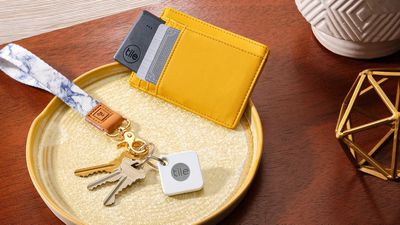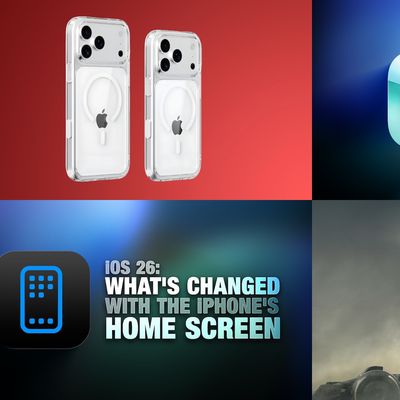Earlier last month, Spotify, Tile, and Match (owner of Tinder), testified at an app store antitrust hearing spearheaded by the U.S. Senate. During the hearing, Spotify called Apple's App Store "an abusive power grab," while Tile said Apple uses its platform to "unfairly limit competition for its products."

Now, in response to their testimonies, Apple's vice president and chief compliance officer, Kyle Andeer, has sent U.S. Senator Amy Klobuchar, who's overseeing the hearings, a letter signaling out Apple's response. In the letter, Apple says that Spotify, Tile, and Tinder are some of the "largest and most successful [developers] on the App Store" and that their testimonies focused "more on grievances related to business disputes with Apple than on competition concerns with the App Store."
Spotify has been one of the most vocal critics of the App Store and has long called into question Apple's in-app purchasing system that gives it a 30% commission on all purchases made. Apple has called its own system both secure and safe for users and developers, and Spotify aims to challenge that declaration. During the hearing, Spotify stated that Apple should allow third-party payment methods on the store if it truly believes that its own system is "superior."
If Apple is convinced that their payment system is that superior, that it really should command a 30% fee, they should allow for competition and let the market determine that. Let supply and demand determine what the right fee is, but they haven't done that.
Apple is pushing back, saying that Spotify's assertion that its own in-app purchasing system hasn't faced competition is incorrect and that it "meets or beats" the "intense competition."
Apple explains that before the birth of the App Store in 2008, developers had a difficult time with software distribution and that any possible attempt to distribute their apps was outright expensive. So when the App Store launched, it charged developers only a 30% commission on purchases, which Apple says helped in "reducing barriers to entry for software developers."
Since then we have never raised the commission; we have only lowered it, including for subscriptions and small businesses, or we have eliminated it altogether in certain situations, as with the Reader Rule and the Multi-Platform Rule. Today, about 85% of apps pay no commission, and the vast majority of developers that do pay a commission can pay just 15% by entering our Small Business Program. The remainder—those making over $1 million per year selling digital goods or services in the App Store— pay a 30% commission (which is reduced to 15% for subscription services after the first year).
Apple goes on to say that Spotify has benefited itself from its App Store commission structure since it "pays a commission on less than one percent of its premium subscribers, and that commission is always just 15%."
Addressing final concerns for Spotify, Apple says that despite what the music streaming giant said during the hearing, it does not prohibit developers from informing users about the ability to purchase in-app purchases, such as subscriptions, elsewhere, such as on the web. Apple correlates this rule to its inability to, for example, place a storefront sign at a Verizon location informing customers to purchase an iPhone from Apple instead.
Apple does not prohibit developers from communicating with their customers; Apple simply says that developers cannot redirect customers who are in the App Store to leave the App Store and go elsewhere—just as Apple cannot put a sign in the Verizon store, telling customers to buy iPhones directly from Apple instead.
The rule is one that has long-been embraced by retailers in both the physical and digital worlds. As for Apple, this common-sense rule has been in place since 2009, pre-dating Spotify's launch on the App Store. Spotify launched, grew, and thrived under these rules, but now Spotify apparently either wants Apple to change them or to hold Spotify to a different set of standards from everyone else.
Targeting Tile, which has long voiced opposition to the Apple ecosystem, and more so following the launch of AirTags, Apple says Tile's item trackers sold poorly at Apple Stores. Apple's response followed Tile raising concerns that since its item-trackers are sold at Apple Stores, Apple would have information on its sales performance which it could then use for development purposes of AirTags.
Years ago, Apple had some information about how Tile products sold in Apple's retail store. It did not sell well. Tile sells its products through dozens of retailers around the globe and its own website. Any information from Apple Store retail sales is both very limited and very outdated and likely no different from the information other brick-and- mortar stores have about products sold in those stores. Nonetheless, Apple has never used any of that information in any decision making related to AirTags.
In its letter to the U.S. Senator, Apple also laid out specifics regarding concerns brought up by Match, which owns the dating network Tinder. Tinder has raised concerns about underage users on the App Store and that Apple does not do enough to limit it. Apple disagreed with this, saying it "strives to make the App Store a safe and trusted marketplace, including by empowering parents with parental controls."
Apple says that it shares the subcommittee's commitment to "promoting competition and innovation, allowing developers to thrive, and supporting the success of great American ideas."


















